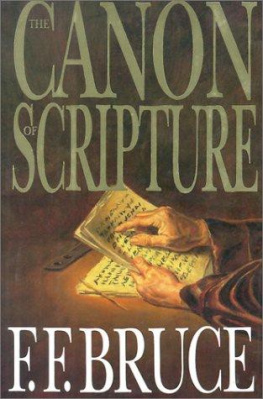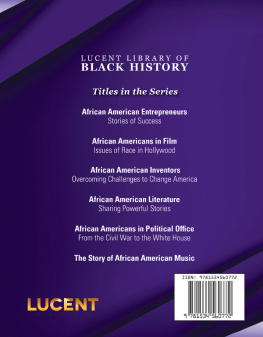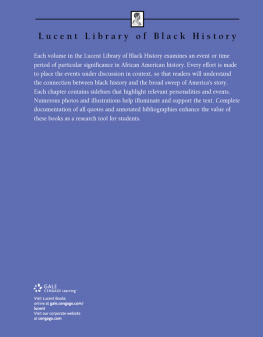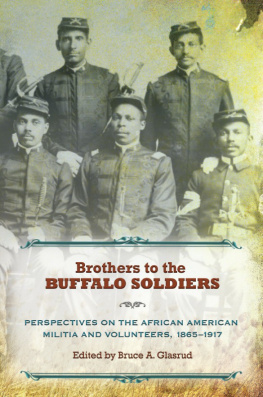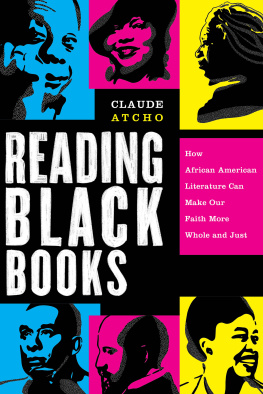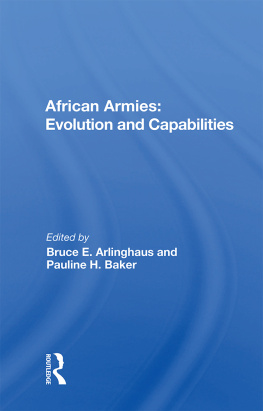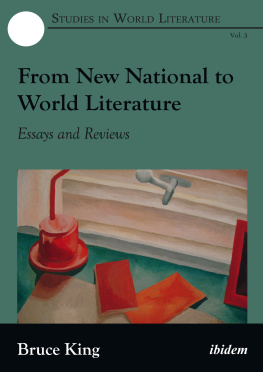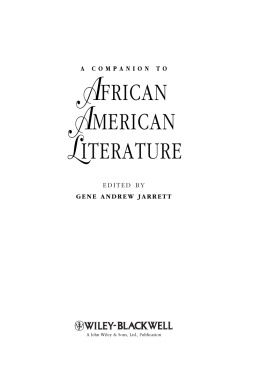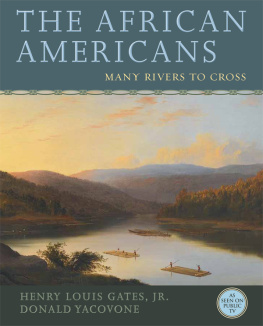Bruce - The Origins of African American Literature, 1680-1865
Here you can read online Bruce - The Origins of African American Literature, 1680-1865 full text of the book (entire story) in english for free. Download pdf and epub, get meaning, cover and reviews about this ebook. City: Charlottesville, year: 2001, publisher: University of Virginia Press, genre: Art. Description of the work, (preface) as well as reviews are available. Best literature library LitArk.com created for fans of good reading and offers a wide selection of genres:
Romance novel
Science fiction
Adventure
Detective
Science
History
Home and family
Prose
Art
Politics
Computer
Non-fiction
Religion
Business
Children
Humor
Choose a favorite category and find really read worthwhile books. Enjoy immersion in the world of imagination, feel the emotions of the characters or learn something new for yourself, make an fascinating discovery.

The Origins of African American Literature, 1680-1865: summary, description and annotation
We offer to read an annotation, description, summary or preface (depends on what the author of the book "The Origins of African American Literature, 1680-1865" wrote himself). If you haven't found the necessary information about the book — write in the comments, we will try to find it.
The Origins of African American Literature, 1680-1865 — read online for free the complete book (whole text) full work
Below is the text of the book, divided by pages. System saving the place of the last page read, allows you to conveniently read the book "The Origins of African American Literature, 1680-1865" online for free, without having to search again every time where you left off. Put a bookmark, and you can go to the page where you finished reading at any time.
Font size:
Interval:
Bookmark:
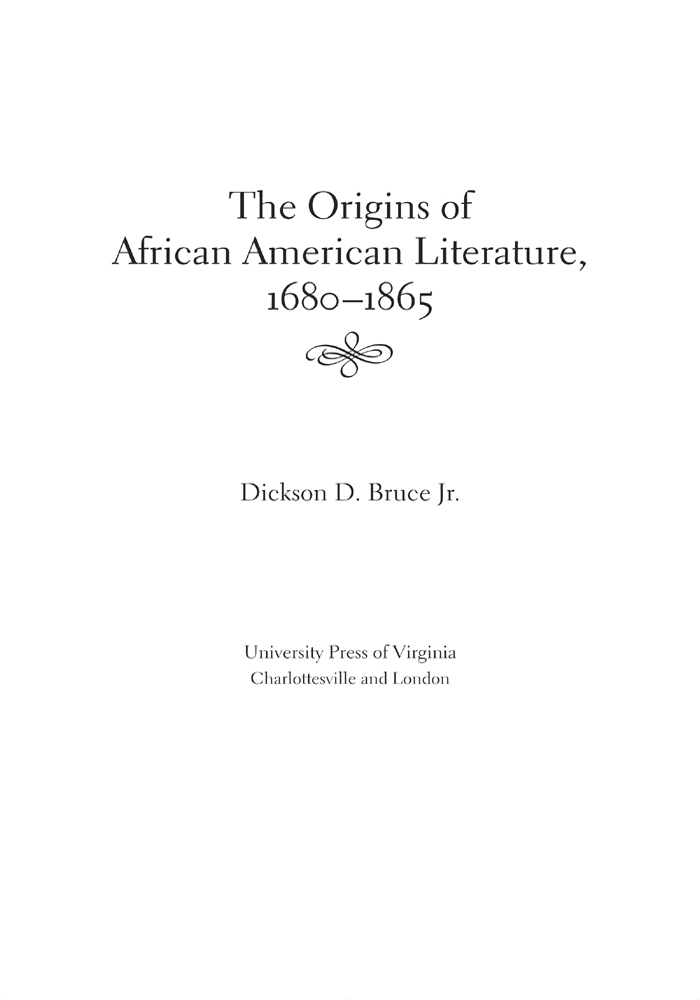

Dickson D. Bruce Jr.
University Press of Virginia
Charlottesville and London
The University Press of Virginia 2001 by the Rector and Visitors of the University of Virginia All rights reserved Printed in the United States of America First published 2001
 The paper used in this publication meets the minimum requirements of the American National Standard for Information SciencesPermanence of Paper for Printed Library Materials, ANSI Z39.48-1984.
The paper used in this publication meets the minimum requirements of the American National Standard for Information SciencesPermanence of Paper for Printed Library Materials, ANSI Z39.48-1984.
Library of Congress Cataloging-in-Publication Data Bruce, Dickson D., 1946 The origins of African American literature, 16801865 / Dickson D. Bruce Jr. p. cm.
Includes bibliographical references and index. ISBN 0-8139-2066-3 (cloth : alk. paper) ISBN 0-8139-2067-1 (pbk. : alk. paper)
1. American literatureAfrican American authorsHistory and criticism. 2. American literatureColonial period, ca. 16001775History and criticism. 3. American literatureRevolutionary period, 17751783History and criticism. 4. American literature19th centuryHistory and criticism. 5. American literature17831850History and criticism. 6. Slaves writings, American History and criticism. 7. African AmericansIntellectual life. 8. African Americans in literature. 9. Slavery in literature. 10. Slaves in literature. I. Title.
PS153.N5 B78 2001 810.9'896073dc21 2001001877
TO EMILY AND JUSTIN
In trying to understand the origins of African American literature, I have taken what many may find to be an unusual approach. For one thing, this study is something other than a survey of major African American authors and their works, although, of course, they occupy center stage. Rather, it is an effort to investigate the historical conditions for an African American literary enterprise. It is an effort to understand why and how black women and men came to do the literary work they did, as well as why, during its more than a century of early development, such work took the various shapes it did.
This study is also unusual in that its focus reaches well beyond the careers of African American writers and their works. It locates the origins of African American literature in a historical context that includes, among other things, African and American oral traditions, European conventions, American race relations, and political activism. Examining a broad array of works by white as well as black authors, I found the origins of African American literature to be in a process in which black and white writers collaborated in the creation of what I call an African American literary presence. This involved developing a voice and a persona imbued with authority and standing, taking a place in larger realms of discourse in American society. Such a presence began to evolve even before there were African American writers, and it played a major role in American cultural history from colonial times to emancipation and beyond.
At the center of this process was the question of authority. We are accustomed to thinking of the African American voice as historically an excluded voice, a silenced voice. In the period surveyed here this was not the case. By no later than 1680, as a wealth of evidence indicates, some English and American audiencesblack and whitehad come to vest a black voice with a special authority that was the product of its very blackness. The modes of authority would change, of course, as would the significance of an African American voice in the larger American context. But the authoritative presence would remain a significant part of literary and cultural life.
Most important to understanding the nature of that authoritative voice, I suggest here, is an examination of the kinds of communities in which it could be asserted, what I sometimes refer to as discursive worlds. This has meant, above all, an approach to literary activity focusing less on texts than on the webs of interaction among African Americans and between black and white Americans that encouraged literary endeavor and provided for the discursive realms within which it took place.
As we shall see, such interactions and the exchanges they entailed were present from an early time. In chapter 1, for example, I show how traditions for an African American voice were shaped during the colonial era by English literary conventions, African and African American oral traditions, religious developments involving blacks and whites alike, and ambiguities in race relations, all interacting to create new literary forms and possibilities. And as we shall also see, the notion of interaction is crucial. As the evidence indicates, Africans, African Americans, British writers, and Anglo-American activists really did collaborate, sometimes quite intentionally, to create a credible black voice and to assert the authoritative possibilities for that voice in contexts far more diverse than one might expect.
A similar approach governs subsequent chapters. Chapter 2, in some ways a linchpin for this study, documents the significance of African American voices to both the Revolutionary cause and the early years of American nation-building. It was during this era that a distinctive African American literary persona began to emergeapparent initially, and most in?uentially, in the career of Phillis Wheatleyembodying tendencies in African American voice and authority that had only begun to take shape in earlier times, establishing patterns that would remain important for almost another hundred years. It was also during this era, in the works of both black and white writers, that a distinctively African American critique of the larger society began to enter into the realm of public discourse.
Both these themesthe development of an authoritative black persona and the emergence of a distinctive black perspective on events guide much of what comes later in the book, though, again, in differing contexts. These include, in chapters 3 and 4, contexts framed by intensifying discrimination, even movements for deportation, during the first three decades of the nineteenth century and, in chapters 5 through 8, contexts created by the rise of immediatist abolition. Though differing markedly, and posing distinctive sets of demands, each of these contexts called forth a quest for black authorityfor an authoritative literary persona and a distinctive black perspectivein which a broad array of in?uences were brought to bear and a wide range of discursive interactions helped shape the personae and perspectives that ultimately emerged. This quest could entail the evangelical interactions, with their powerful celebrations of a pious black voice, that appeared early in the nineteenth century. It could entail the investigations of an African identity prompted by exclusionist movements occurring at about the same time. And it could entail the biracial experiments in literary activism inaugurated by the creation of the Liberator in the early 1830s.
The approach taken here, then, to the study of the origins of African American literature is one that investigates, above all, its sources and locates those sources in the changing historical milieu within which literary activity took place. Certainly, this approach is not intended to slight the specifically literary traditions in which African American literary activity became involved, whether those that in?uenced its development or those it helped to create. One of the focuses of this study is, in fact, the emergence of ideas of a specifically African American literary tradition widely acknowledgedthat began fairly early in the nineteenth century. Such traditions were part of that changing historical milieu. My approach might be described as essentially rhetorical, focusing as it does above all on the purposes of African American writing, on the ways in which writers sought to fulfill those purposes, and on the reasons why they may have believed that certain strategies made sense.
Font size:
Interval:
Bookmark:
Similar books «The Origins of African American Literature, 1680-1865»
Look at similar books to The Origins of African American Literature, 1680-1865. We have selected literature similar in name and meaning in the hope of providing readers with more options to find new, interesting, not yet read works.
Discussion, reviews of the book The Origins of African American Literature, 1680-1865 and just readers' own opinions. Leave your comments, write what you think about the work, its meaning or the main characters. Specify what exactly you liked and what you didn't like, and why you think so.



